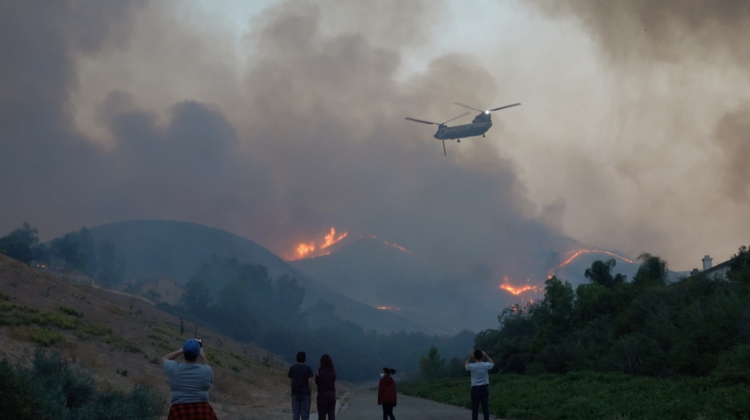By Mitali Shukla
Junior film studies major Max Mulderrig woke up in the middle of the night to winds so strong that the window in his room flew open in his home in Thousand Oaks, California. The Chapman Progressives president had an inkling that the strong winds and the dry climate could have bad implications.
“Given the wind, I predicted that there would probably be a fire because of the Santa Ana winds and the time of year,” Mulderrig said.
He was right. The Silverado and Blue Ridge Fires broke out Oct. 26, collectively burning over 26,000 acres as of Nov. 1.
Freshman environmental science and policy major Rama Bedri attributed the Silverado and Blue Ridge fires to much larger issues, including global climate change.
“Earth is constantly getting warmer and that’s leading to the fires,” Bedri said. “There’s also other reasons that the fires are occurring often, such as the drought and the increased water usage as the population is growing.”
It was because of that phenomenon contributing to a drier climate, that Seung Hee Kim, a Chapman professor in the Schmid College of Science and Technology, anticipated the wildfires much like Mulderrig.
“The fire requires three components: ignition, vegetation and climate,” Kim said. “It is hotter and drier, which means the vegetation is easy to burn. It was just a matter of time.”
Kim told The Panther that studies have linked large-scale wildfires to man-made climate change. Recent research has found that fire weather has become more frequent and intense in the last couple of decades, he said.
Renewable energy has frequently been mentioned as a viable solution to the seemingly unrelenting force of climate change. Mulderrig said Chapman should be doing more to use alternative energy sources on campus, given the robust resources they have.
“Both Republicans and Democrats have vested interests in the fossil fuel industry,” Mulderrig said.
Bedri said students should vote for leaders who will enact policies to invest in renewable energy and combat global warming, as the number of fires is only projected to increase in the future, particularly in California.
Those sentiments were echoed by Georgiana Bostean, an associate professor in sociology and environmental science.
“The most efficient individual action is to vote for policies and representatives that address the root cause of these increasingly severe fires – climate change,” Bostean wrote in an email to The Panther. “Otherwise, we will play a game of whack-a-mole trying to adapt to or merely mitigate the consequences of climate change rather than also reduce the rate of global warming, which would have benefits well beyond wildfires.”

